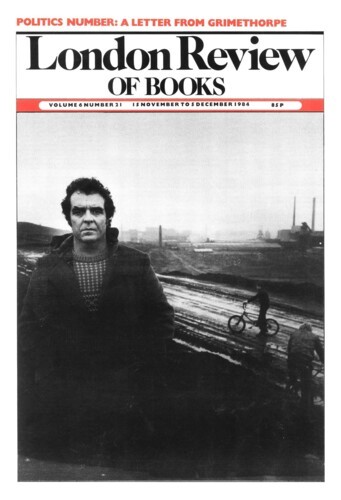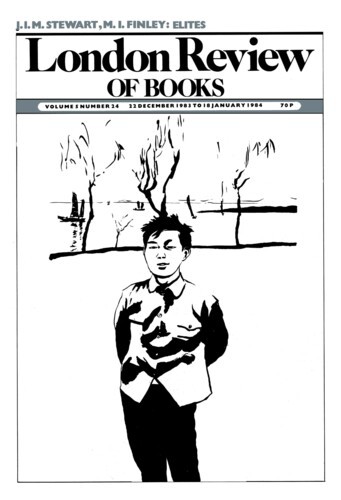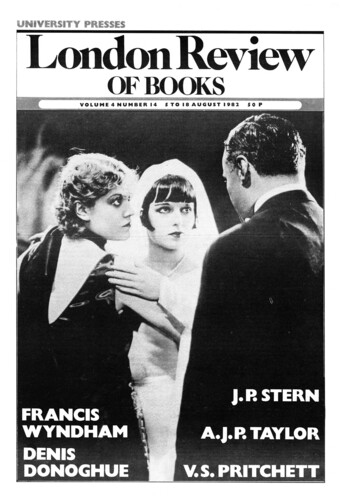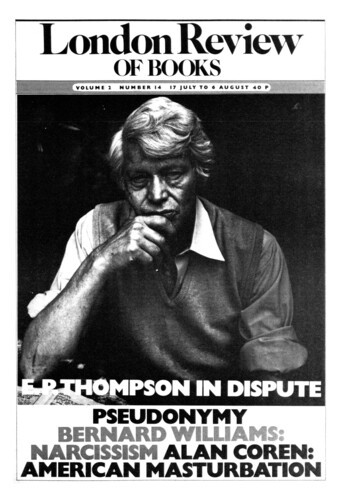A loaf here, a fish there
Roy Porter, 15 November 1984
Not the least of the debts we owe to the late Michel Foucault is that he directed our attention to the revolutions which transformed the life sciences around the dawn of the 19th century. On the one hand, traditional discourse about animals and plants, centred on such criteria as visible character and structure and geared to classification within the Great Chain of Being, was replaced by a science of form and organisation, concentrating on function and the internal subordination of parts, and directed to the problem of life itself. Or, as he put it in Les Mots et les Choses, natural history yielded to biology. The key figure here was that ‘Napoléon de l’intelligence’, Georges Cuvier. On the other hand, Foucault traced in La Naissance de la Clinique the demise of traditional theories of health and disease. These had been centred on holistic notions of the sick person’s constitution, and had been dependent upon the patient’s own expression of his symptoms. Foucault showed how these practices were replaced by a new interventionist medicine, whose entry point was the lesion, whose prize techniques were morbid anatomy and pathological physiology, and whose site was the clinic. In that reorientation, pride of place went to the Paris Hospital and the French school of medical science.





